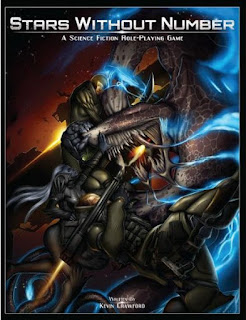Prompt: Favourite RPG illustration
I love this thing. It's gorgeous, and clearly describes a damned complicated cosmology formed from the interactions of half a dozen game lines.
-
Part of the reason I love this image is that I like cosmology. I'm a big fan of fictional realities with layers of different worlds; faerie worlds and underworlds and overworlds. I'm a compulsive cosmology scribbler myself, and while the 3 x 3 afterlives of AD&D's alignment system is a little more celebrity squares than I like, I enjoy looking at the way they interact with the material world and its human - or other - cultures.
Maybe it's the anthropologist in me, but I love this stuff. Perhaps the best game for it is Heroquest; not the boardgame, but the RPG of magical barbarian tribes, in which the myths of the tribes occupy the God Time in which they happen constantly, and humans can enter the God Time via heroquests to interact with the myths and bring good shit back for their tribe just like their gods and founder heroes did.
Anyway, that's me up to date (haha!)
Catch more talk about RPG art on the hashtag #rpgaday and, as usual, checkout James Holloway's video posts for a far more informed and exhaustive offering. I'll be back tomorrow to talk about the thing that we have to talk about on day 13 (favourite RPG podcast.)
 |
| The new World of Darkness, by William Harper; (c) William Harper, willworks-studios.com |
-
Part of the reason I love this image is that I like cosmology. I'm a big fan of fictional realities with layers of different worlds; faerie worlds and underworlds and overworlds. I'm a compulsive cosmology scribbler myself, and while the 3 x 3 afterlives of AD&D's alignment system is a little more celebrity squares than I like, I enjoy looking at the way they interact with the material world and its human - or other - cultures.
Maybe it's the anthropologist in me, but I love this stuff. Perhaps the best game for it is Heroquest; not the boardgame, but the RPG of magical barbarian tribes, in which the myths of the tribes occupy the God Time in which they happen constantly, and humans can enter the God Time via heroquests to interact with the myths and bring good shit back for their tribe just like their gods and founder heroes did.
Anyway, that's me up to date (haha!)
Catch more talk about RPG art on the hashtag #rpgaday and, as usual, checkout James Holloway's video posts for a far more informed and exhaustive offering. I'll be back tomorrow to talk about the thing that we have to talk about on day 13 (favourite RPG podcast.)



